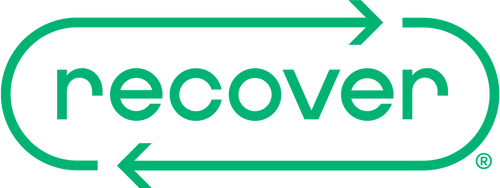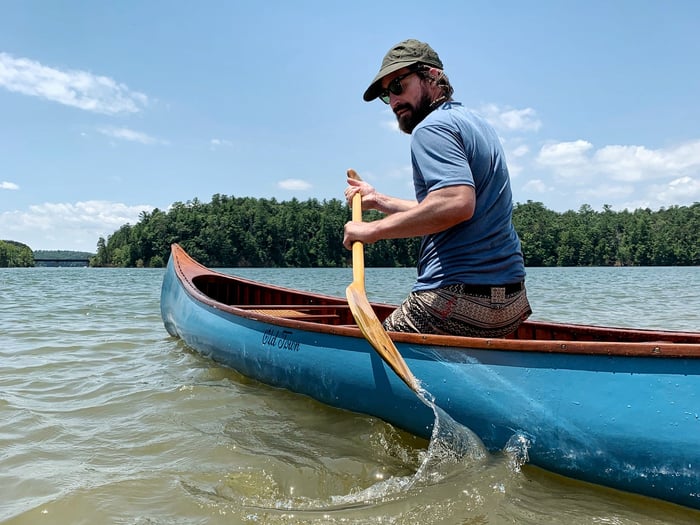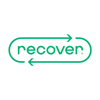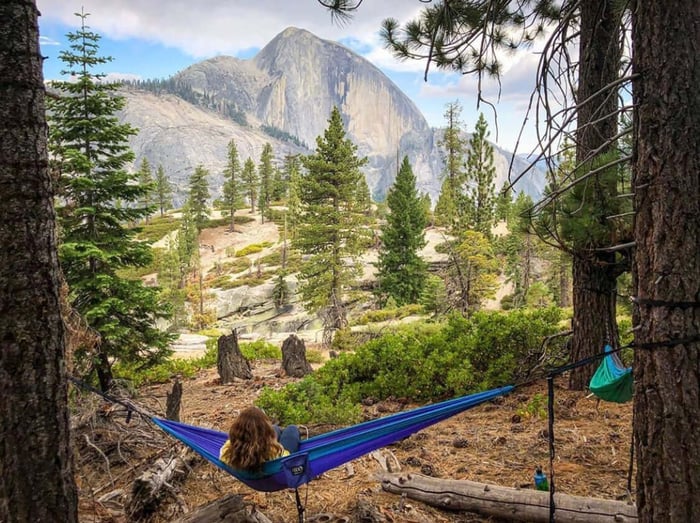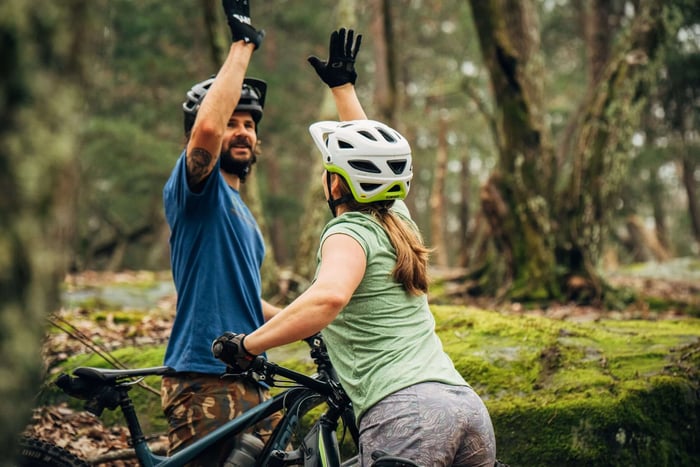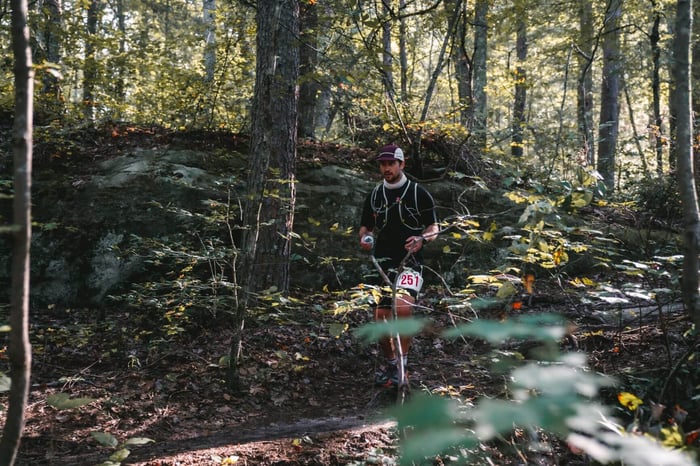Recover’s headquarters are in Charlotte, North Carolina and let us tell you… summers can get hot here. Right now, everyone is trying to figure out how to cool off and get a swim in. Even as temperatures begin to moderately cool heading into fall in the next month, there is no doubt that the best place to be is in the water in some way, shape, or form no matter where you are this time of year.
Supporting and learning more about your local Riverkeeper is one of the best tips out there for keeping your favorite swimming spot safe to swim. Riverkeepers, also known as Waterkeepers, are organizations that act as watchdogs and advocates for keeping local waterways clean, healthy, and safe for our communities. A quick google search will help you find one in your area.
We sat down with Catawba Riverkeeper’s Brandon Jones to learn more about how to know if your local spot is safe to swim, what Riverkeepers do, and quick and easy things you can do to help keep our swim spots and waters clean…
First of all, tell us a little about Catawba Riverkeeper...
We're one of the older Riverkeeper organizations. We’ve been around for 22 years now. Our basin is large and stretches through 26 counties and 2 states. We have a staff of seven- so are stretched pretty thin- but we work as a nonprofit to improve and monitor water quality and to educate and advocate for our watersheds, creeks, and rivers.
How does the Catawba Riverkeeper (and Riverkeepers in general!) contribute to keeping our favorite swim spots safe and clean for people to enjoy?
We do two things:
One, we go out and test the water to see if it is safe to swim. The most common call we get is something along the lines of, “My grandkids are coming to town. Is it safe for them to swim here?” That question- “Is it safe to swim?”- is actually hard to answer. We use bacteria indicators to help answer. For example, one is for E. Coli., which is associated with human feces in the water and certain levels of E. Coli in the water are associated with people getting sick. Anyone can sign up to get swim alerts for their local areas if they have a riverkeeper. For us, from Memorial day to Labor day, we collect water at 53 sites across the basin and report every weekend on whether it is safe to swim in favorite spots along lakes and rivers.

Second, we work to decrease the amount of sewage going in our waterways in the first place. Primary contributors are all larger concentrations of general development. Any time you have more development, there is more runoff that will mobilize more water into the water we drink and swim in.
At Catawba Riverkeeper, we have 3 major protection programs, in which we go out and sample creeks downstream of facilities and report any violations to the State to try to get these facilities to be abiding by the rules. There are rules that protect clean water standards, but not a lot of oversight for them. Next, there are over 150 wastewater treatment plants and discharges, and they are supposed to meet certain discharge bacteria criteria. Theoretically, it should be safe for you to swim after 200 feet of permitted discharges, and those permits come up for renewal every 5 years. By monitoring, we can pull those permits if the treatment plants haven’t been meeting compliance. With technology, the amounts of bacteria in discharge should be getting ratcheted down to zero.

What can we do as individuals to help keep our favorite swimming spots clean?
Don’t flush wet wipes and clean up after your dogs. Especially in the cities, water quality is horrible downstream of dog parks, and wet wipes or anything flushed besides toilet paper can easily clog old city and town pipes - the infrastructure just isn’t there to handle them- the pipes will clog and then there is sewage overload and overflow.
Another big one is: if you see or smell something, say something. Even in the most dense urban areas, your creeks should not look and smell bad, so if they do, report it so that any infrastructure can be fixed. For example, there are over 4500 miles of pipe in Charlotte and the managers can't look at that every day, but they will go out and address it if they’re told.
What else is important to know about our swimming holes and water?
A lot of people don’t think about their water, and because of that they don’t protect it. But what people oftentimes don’t know is that they are drinking the same lakes they’re swimming in and when you flush the toilet or put something down the drain, it goes back into the same system of your drinking and swimming waters. We all have a part to play to protect them.
Also, there is a Swim Guide program, which is an international program that monitors and reports on whether or not it’s safe to swim. You can find out if you have a representative in your area at theswimguide.org and easily plug into the app or website to keep up with your area.
And- when you’re out there on the beach or river or lake, clean up after yourself. Things like styrofoam don’t go away for hundreds of years (if ever) and after 2 weeks they are in hundreds of tiny pieces that never go away, but that become extremely difficult to pick up.

Where’s your favorite place to get in the water this summer?
I enjoy paddling whitewater and there’s a little shoal section on the South Fork, just north of Cramerton I’ve been going to. There’s a blue way for the public and when you go there, it doesn’t feel like you're right outside the city. There’s really cool old pre-historic 1900s bridges you’re floating under too.
Thanks so much Brandon and thanks for all the work you do!
Support your local Riverkeeper and from us at Recover, here’s some beta for our favorite swim spots this summer!
Recover is a proud partner and supporter of Catawba, Watauga, French Broad, and Green River Riverkeepers in our Western North Carolina backyard. Through the Recover Clean Water initiative, for every product you buy, we donate one day of clean drinking water to one person in need.
Recover’s Favorite Swim Spots
Kim Hall, Graphic Designer
We’ve been hanging at Pony Pasture Rapids on the James River in Richmond, VA.
Brandon Boan, Graphic Designer
Curtis Creek in Pisgah National Forest near Old Fort, NC has been my weekly spot.

Ben Prater, Sales Manager
I take advantage of Lake Norman and Lake Wylie as much as possible. Lake Norman is huge, so it has something for everyone. It along with Lake Wylie are monitored by the Catawba Riverkeeper! They have a really cool swim guide where they feature real time results from water testing.
Kyle Steen, Accounting Manager
- My parents backyard - Lake Hickory (NC). Sentimental reasons obviously.
- McKenzie River (OR) - I don't have a specific spot but it's a beautiful river.
Vince Reo, Logistics Manager
I'm going to go with Rainbow Falls in Gorges State Park and...any beach. I'll say Wrightsville!
Morgan Martino, Customer Service and Marketing Coordinator
My favorite this summer is Triple Falls and High Falls located in Dupont State Forest.


